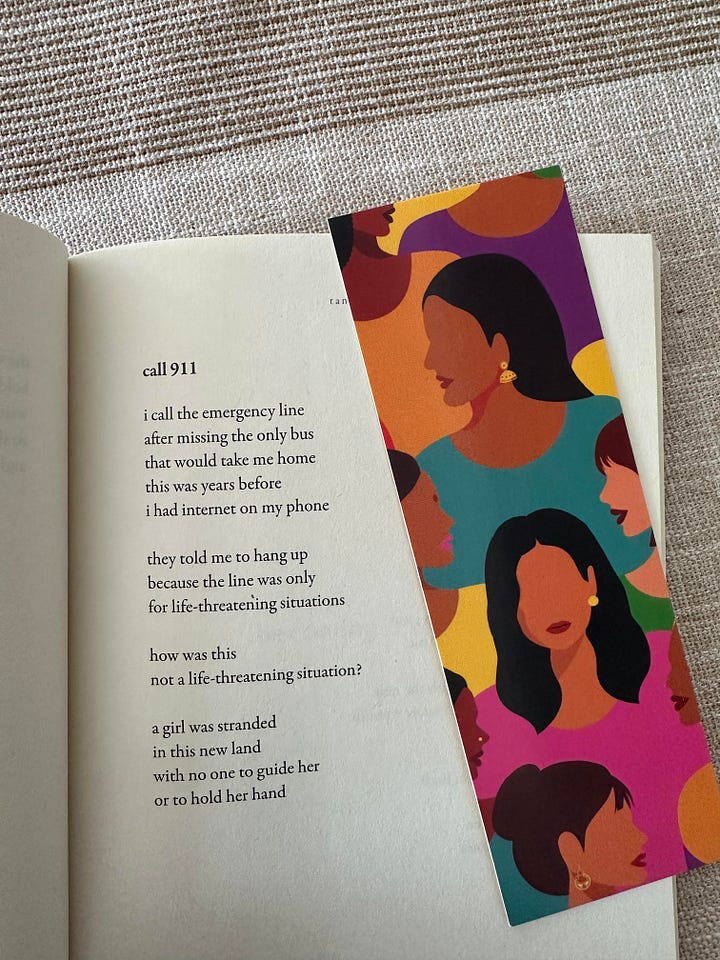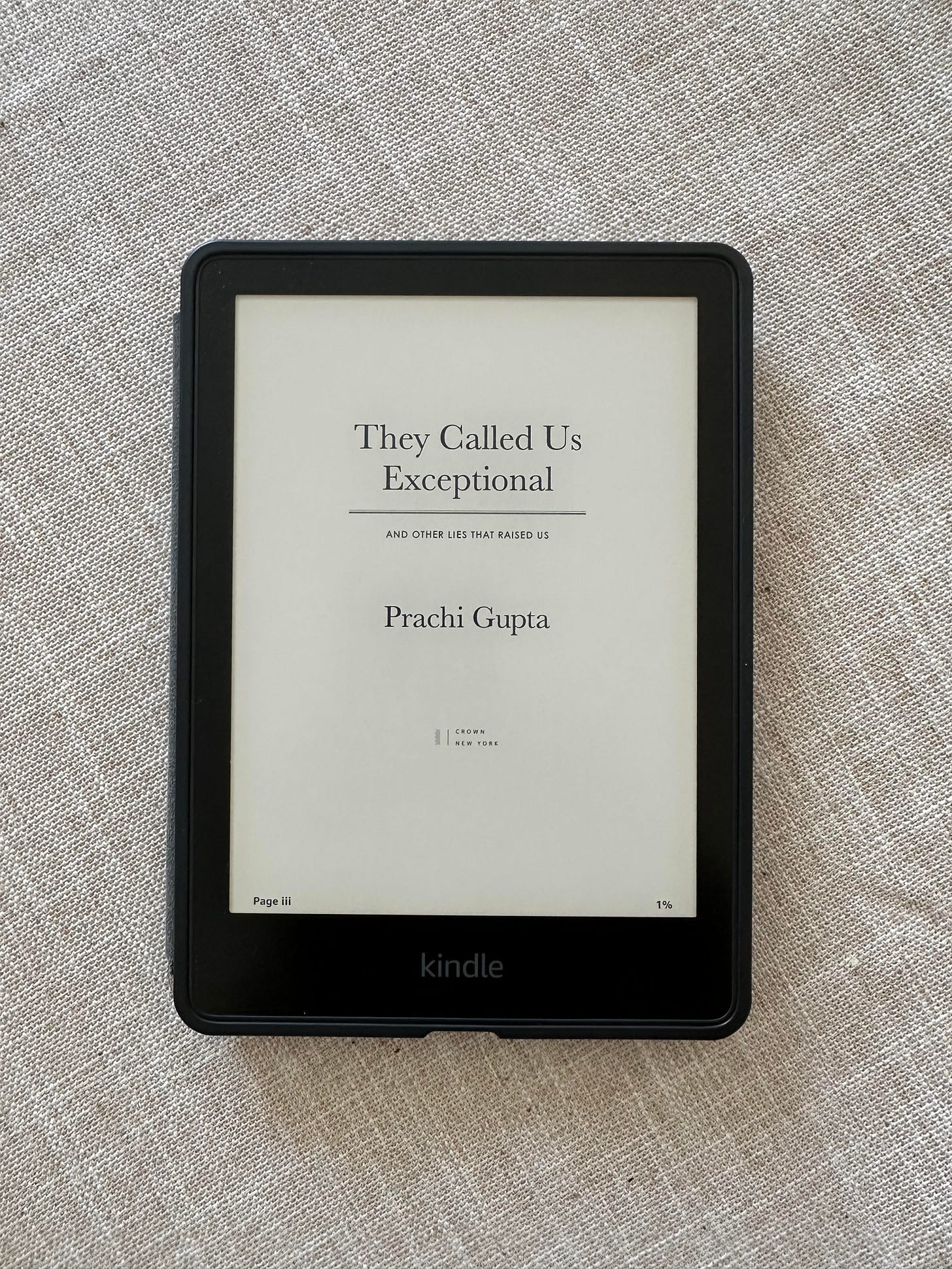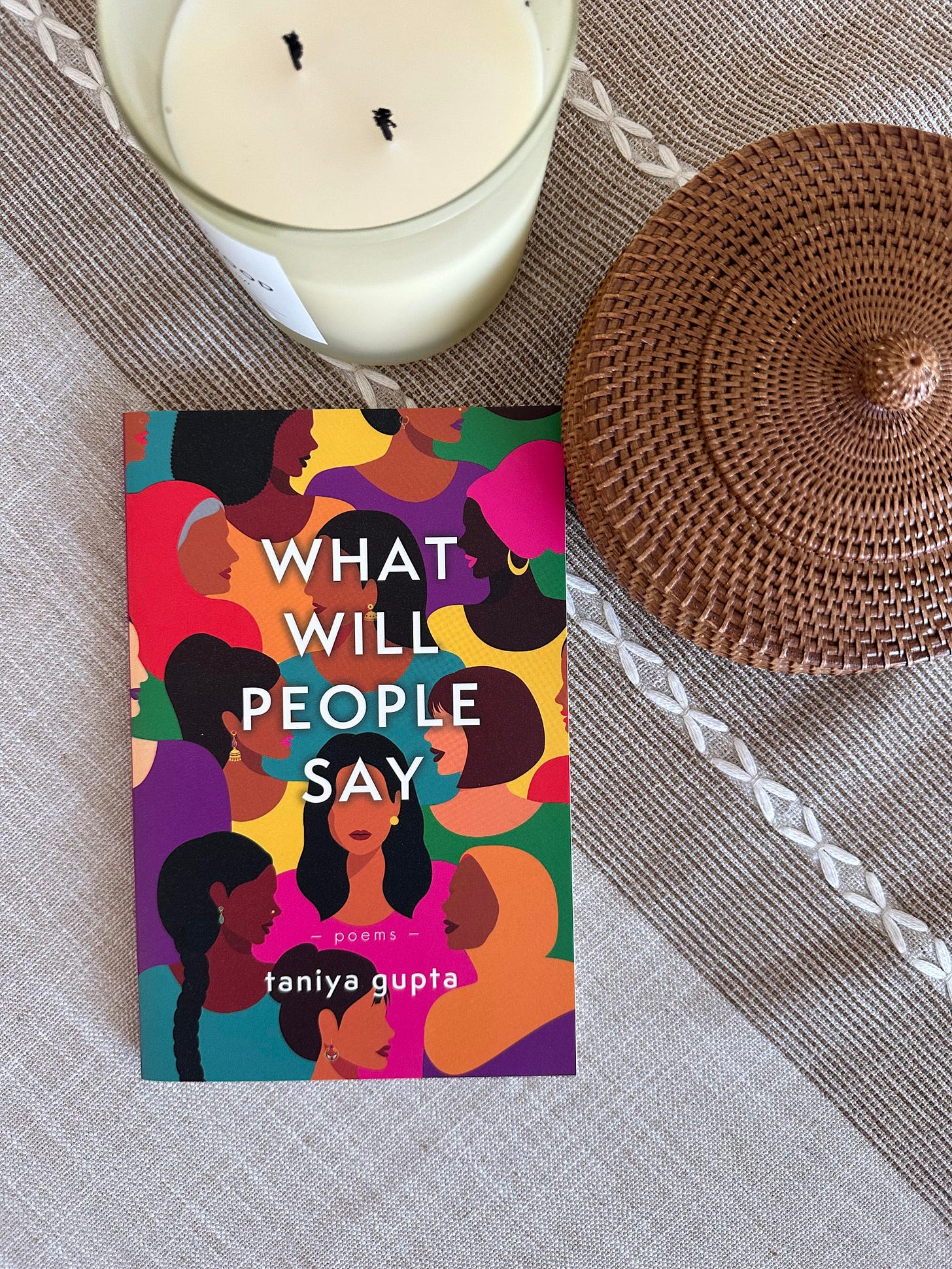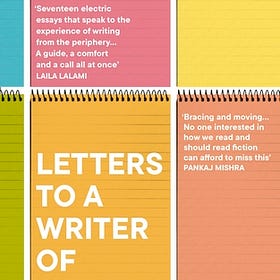Rewriting the Narrative
Two South Asian women respond to the refrain "Log kya kahenge?" in a memoir and a poetry collection
Our most recent podcast episode was a discussion of The Inheritance of Loss by Kiran Desai — we really enjoyed the book and had lots to say, but today I want to talk about something else.
I don’t often read memoirs or poetry collections, but recently I read both within a month of each other, and I haven’t been able to stop thinking about them. I would love for these books to have a wider readership, so here I’m sharing my reflections on the memoir They Called Us Exceptional and the poetry collection What Will People Say.
There are a few reasons I’m pairing these books together: both deal with the difficult topics of abuse, neglect, mental illness, and generational trauma, in ways that are often not talked about publicly. I found that the content and form of one book informs the themes in the other, and vice versa. And with content that is so intimately tied to culture, societal expectations, and familial obligations, the mere existence of these books is an achievement.
I hope my reflections prompt you to pick up these books.
At the end of this newsletter you’ll also find some concluding thoughts on writing and rewriting narratives, and claiming our stories.
They Called Us Exceptional by Prachi Gupta
I read this book on my Kindle, but immediately regretted that decision. Just in the introduction, Gupta’s voice, clear and confident, seemed to break through the pages and call out to me. I underlined so many passages — I only wish I could have dragged a highlighter across the physical pages.
They Called Us Exceptional is Prachi Gupta’s story of her family and its dissolution. For most of her life, she defined herself and her family through what she was told about her culture. But as time goes on, this becomes untenable, and ultimately it all comes crashing down.
I am often frustrated by writers and creators from the South Asian diaspora who assume that their experience is the universal South Asian experience (this is surely tied to the reductive bucket of ‘Asian’ that billions of diverse and unique peoples are thrown into). But Gupta doesn’t do that at all. She writes about herself and what she knows; and somehow by doing this, I see versions of myself and the lives of others in her story — even though my life has been nothing like hers.
Thinking about this odd contradiction, I am reminded of a quote by Jacqueline Wilson: “The more specific we are, the more universal something can become. Life is in the details. If you generalize, it doesn't resonate. The specificity of it is what resonates.”
Though Gupta tackles difficult topics, and struggles to cope with her grief and anger, she treats each topic with care. The memoir, while written in the first person, is addressed to her mother, from whom she is still estranged to this day.
In addition to intimate portraits of her family members, Gupta also discusses the unique cultural forces at play that made her situation all the more difficult, as well as the broader context from which they came. As she writes, she makes references to colonialism, capitalism, and the modern minority myth, weaving them into her own narrative seamlessly without sounding preachy.
“[I] wondered why I had been taught to make my ambitions so big yet keep my imagination so small.”
She writes with honesty and clarity some of the thoughts that have been swirling in my mind for years, and I felt a deep gratitude seeing these sentiments immortalized on the page. In another example, she takes a nuanced approach towards exploring Western psychology, South Asian cultural norms, and their limitations.
“The interventions that worked for white women did not consider the various structural, racial, or cultural barriers that immigrant women of color faced in accessing help…”
I think I would recommend this book to just about anyone — but particularly to those who loved Carmen Maria Machado’s In the Dream House. Though They Called Us Exceptional is thematically and topically very different from Machado’s memoir, it describes with a similar artistry the impact of emotional and psychological abuse.
But despite all the traumas she has faced, Gupta manages to write her own story on her own terms. I can’t know whether writing this book was cathartic for her, but it certainly felt that way to me as I read it.
What Will People Say by Taniya Gupta
Earlier this year, Taniya reached out to us to share her debut collection of poetry, What Will People Say. “It also offers suggested tea pairings with each section” she added, in a nod towards the name of our podcast and publication.
In all honesty, I was nervous to read this collection, as I don’t read much poetry, and I’m not very familiar with how to critique it. But Gupta’s book is inviting and accessible, reading more like a story, so that I found myself reading it from cover to cover in one go, before going back and spending more time with individual poems.
What Will People Say tracks through the writer’s life, from ‘little girl’ to ‘growing up’ to ‘becoming a woman,’ then taking us through ‘crashing down’ and ‘my healing,’ before finally ending with ‘reunite, rejoice.’
Through her poetry, she tackles themes of the patriarchy, culture, mental health, immigration, and violence, as she narrates the story of her life. Gupta, originally from Punjab, but now based in Toronto, writes at the end of the collection that she was “inspired by not only her own life, but also the women in her family and millions of others trapped in patriarchal family structures.”
Each poem highlights its own topic while simultaneously referencing the other poems in the collection, and the dominant themes of her life.
In the poem ‘my motivation’ she writes about her mother:
i saw her wanting to
live her dreams through meof being an independent woman
of being a world traveler
of laughing
and being free
In ‘wedding planning’ she nails down the self-doubt and guilt that first generation immigrants use to diminish themselves:
maybe i am suffocating
no
it is not as bad as mom had it
And one of my favorites, ‘wedding crasher,’ ends with a gut-punch (I won’t spoil it here, but if you’re intrigued, I strongly recommend picking up the book).
As I read through the collection, noticing the evolving forms of the poems, I noticed the ways in which she treats the page as her canvas, with words spread out, leaping from side to side, not sticking to any conventional form.


At times, Gupta forays into descriptions of the natural world around her, from the rain to the flowers to the wind — but ultimately her strength is in verbalizing her own emotions and sharing her story in raw, unfiltered language, without simile or metaphor.
Towards the end, there is a poem titled ‘my story’ in which she talks about the importance of writing our own stories, and perhaps more importantly, rewriting them.
Rewriting the Narrative
Reading these two books in close succession enhanced my experience, given the similar and overlapping themes. In the past, I have balked at the number of immigrant and POC stories that revolve around trauma. It concerns me, and makes me uneasy, because it makes me feel like there are certain unknown, but sinister, machinations of the publishing industry bent towards upholding the ‘noble savage’ and ‘white savior’ tropes of the past.
But despite the fact that both these stories revolved heavily around trauma, I found that I didn’t feel uneasy reading them. In fact, I felt proud. I applauded their bravery, for speaking out about issues that have long been, and continue to be, taboo.
In the essay collection Letters to a Writer of Color, Taymour Soomro, one of the editors, writes:
“Am I this or that? Am I what you say or what I say? So that our image flickers — in the mirror and to others — and one day we look one way, and another, another way. And as a result, we see in identity its multiplicity, its slipperiness, its shiftiness, that it changes across time and place, that we can change it.”
— “On Origin Stories” by Taymour Soomro (bolded text by me)
Is your identity what others say it is?
The phrase ‘Log kya kahenge?’ (tr: what will people say?) implies that you are defined by others, that you must carefully police your movements and actions to avoid judgment and ostracization.
Prachi Gupta, Taniya Gupta, and thousands of others are throwing off that shroud of society’s expectations and claiming their own stories.
Soomro finishes his essay by saying:
“I suppose I am suggesting that fiction and a self might be made out of the same material, might be as ephemeral or as real, that autonomy over the self can extend to fiction, that autonomy over fiction can extend to the self.”
Your story is your own to write.
— Shruti
Up next, we’re reading The Other Americans by Laila Lalami. Tune in to the episode tomorrow (October 2) wherever you get your podcasts!
Partition Novels: Books about the Division of India and Pakistan
From the moment we chose our Season 4 theme, Neha and I knew that we wanted to discuss a Partition novel — a book that revolved around the India-Pakistan border and its history. For us, this was the ultimate border; a part of our legacy.
Books from Around the World, Disability, and Trauma Narratives
We are already wrapping up Season 2 of our podcast - and what a season it was! We had so many thoughts on representation, post-colonial writing, and the kinds of stories POC authors get to tell. In this newsletter we expand on these topics, and share some unique book recommendations you may not have heard of before!







Thank you so much Shruti and Neha for taking the time to read and share about these books and the importance of rewriting our narratives!! ❤️🙏🏽
Thanks for these recommendations. I don’t think I’ve ever read a memoir written from a South Asian perspective so I’m eager to read Gupta’s work.